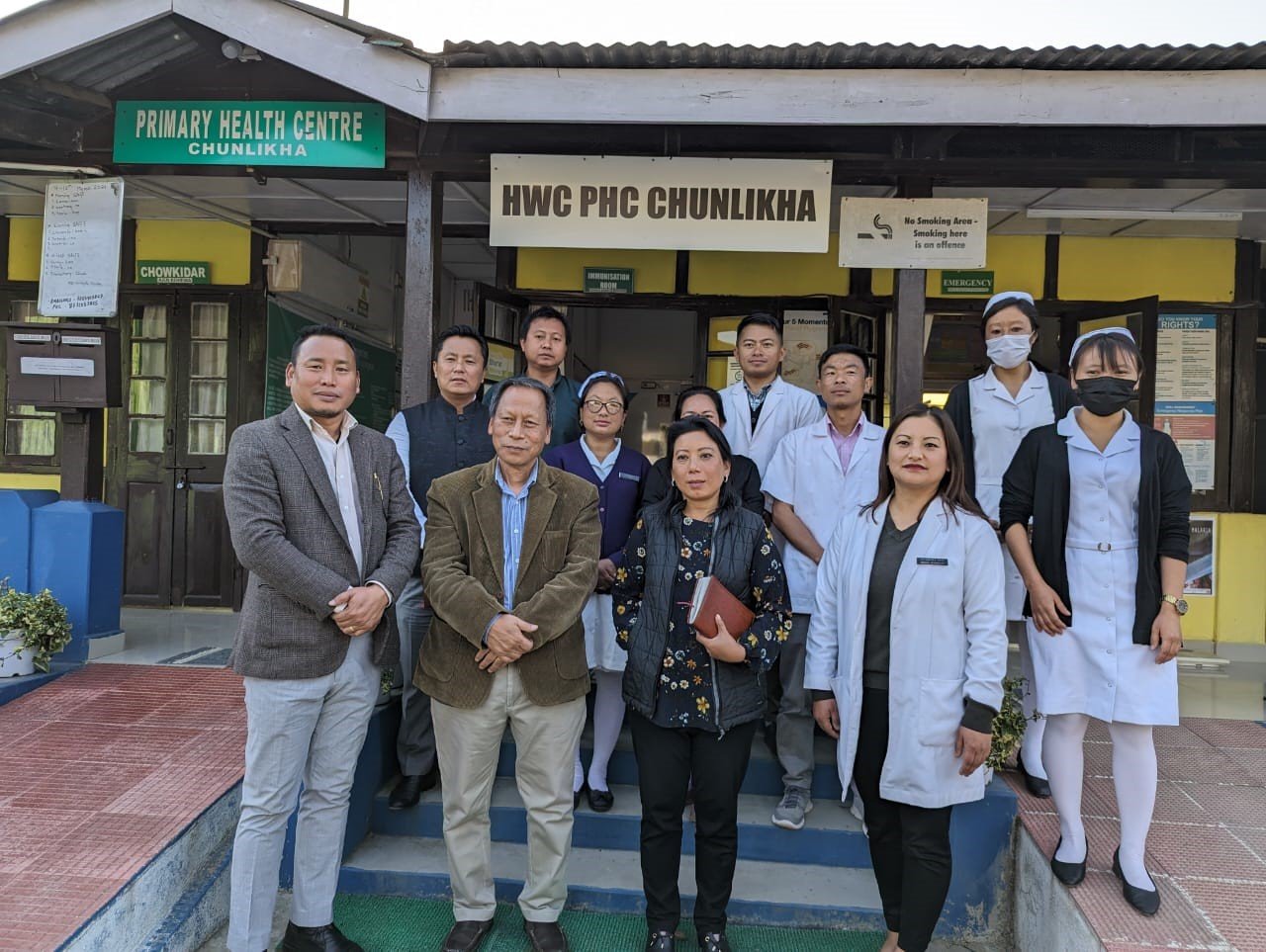The Nagaland State Human Rights Commission (NSHRC) recently visited government-run health centres in Kohima and Tseminyu districts to assess the conditions of the hospitals from March 5 to 7, 2024.
The three-day visitation covered 12 health facilities including Community Health Centres, Primary Health Centres, Health and Wellness Centres, Integrated Ayush Hospital, and sub-centres, informed a press release by the NSHRC.
The NSHRC team was led by its Chairperson Justice Songkhupchung Serto, and Member R Nzanbemo Lotha, Secretary Limanenla and representatives from the office of the Chief Medical Officer, Kohima.
The main objective of the visit was to ensure that the right to health, which is a fundamental human right, is being upheld in these health facilities.
Commenting on the visit to the health facilities, the chairperson said that by and large the sub-centres, PHC and CHCs with one or two exceptions; as far as Kohima district is concerned the buildings are okay. However, it found that manpower management and medicine supplies need to be improved.
In all the medical health centres except for the two urban health centres at Kohima—Urban Primary Health Centre in Porterlane and Seikhazou, timely supply of medicines, health care equipment and other requirements like bandages, hand gloves etc., have been expressed by the personnel working in the health centres, he observed.
Serto also said the construction of the CHC at Tseminyu Old Town, which caters to a population of 50,000 requires top priority since the existing building is far from being adequate.
Another common problem found in all the health centres is the lack of water supply except at Chunlikha PHC. Water is not only essential, but without it the maintenance of the hospitals and health centres is difficult as the medical officers have to buy it from private suppliers. Therefore, the commission would like to draw the government’s attention to this issue, said Justice Serto.
He also pointed out that the power supply at CHC Botsa will require immediate intervention from the department. Delay and doing so may cause irreparable harm to the building itself since the wiring are in poor connection as the air condition already installed cannot be made functional due to the poor wiring and non-supply of power from the Power Department. The power they get from the solar panels is insufficient for running the CHC.
“The hospital or health centre can be run successfully only if the doctors and nurses stay in and around the campus or at least within the town or village. But what we find is that most of these hospitals and health centres don’t have accommodation making it compulsory for them to travel from Kohima,” stated the NSHRC.
Download Nagaland Tribune app on Google Play

“If there are no patients (indoor patients) in hospital/health centres of CHC level, it would be because either there are no patients or there are no doctors attending the patients. In the case of the CHCs that we visited, the later seems to be the case. The government needs to do its part and the doctors and nurses should also be a little more dedicated in serving the people”, Serto observed.
He went on to add that every other concern of life can be taken care of if health is good but without good health, every other concern of life may even become meaningless.
The Commission will be discussing with the officers of the Health and Family Welfare department to bring these issues to their notice so that they find ways and means to resolve them.
The NSHRC is an autonomous body and has been functioning since March 2023 after the appointment of the chairperson. The commission exists to protect and promote human rights in the state of Nagaland. It has the authority to inquire into complaints and grievances of human rights violations and recommend appropriate remedies to the government for action.
The Commission is also taking up suo moto cases of custodial deaths, assaults, and coal mine death cases besides assessing government-run health facilities, educational institutions, and public distribution systems.

